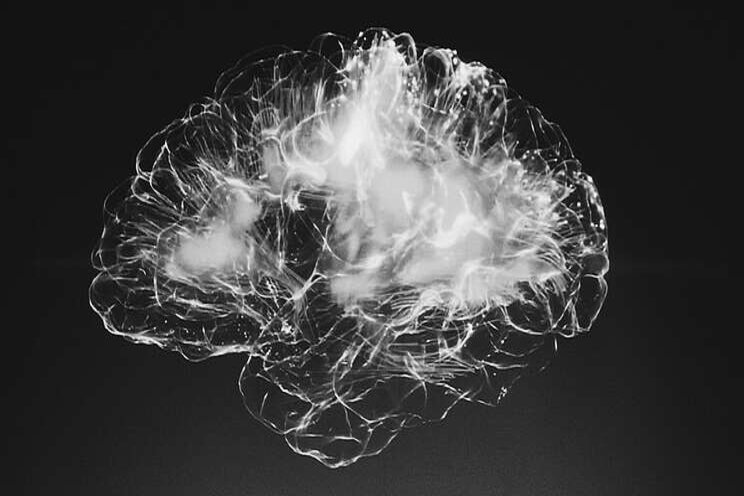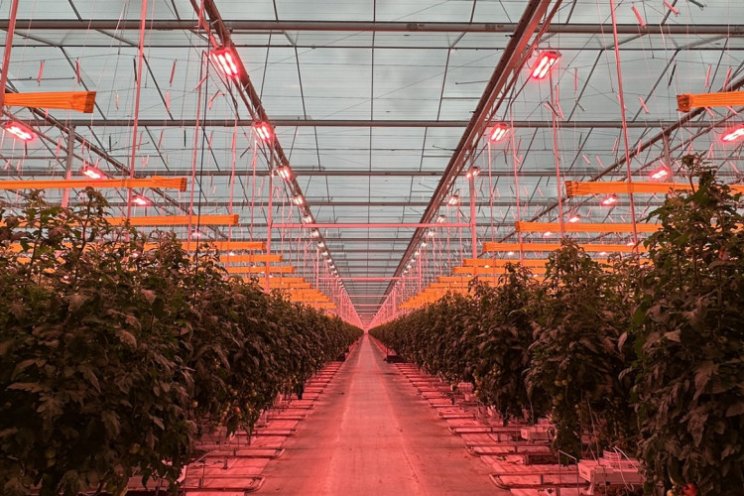Mental health | Eat this to beat disease
Added on 05 May 2021

"The part can never be well until the whole is well" - Plato
In a new series we discuss healthy foods from the aspect of people who are already suffering from an illness. A diagnosis is likely a time in your life when you reflect on bad habits or unfortunate genetics leading to disease.
Mental health is an incredibly complex subject and if you are suffering it could be for an infinite number of reasons. It is important to stress that our brains and cognitive function are the most complex in the animal kingdom with billions of neurons interconnecting to send signals to our body to function properly. We are all suffering a degree of mental health issues because of uncertainty over the outcome of the pandemic.
Not all plants can be grown to maturity in a controlled environment like a greenhouse or a vertical farm but they can be initiated in tissue culture to precipitate clean production of virus free clones. A huge advantage of CEA is pesticide free production which has benefits for overall health and is significant in terms of cognitive function.
Over 50% of US consumers have tried or are interested in functional food and drink that can aid sleep, is calming or helps with relaxation.? ?
Backed by growing scientific evidence, diet is well accepted as an important factor in mental wellbeing in addition to physical health, with more consumers turning to nutrition to support stress management and help improve sleep and concentration.
Well where to start with this?
We are born with the equal senses of taste, smell, hearing, touch and vision and our relationship with food stems from these early childhood experiences and habits.

We predominantly use four senses in fueling our bodies and they are integral to how we behave and interact with food. At birth we have a sense for only one food and instinctively know the smell. As we are weaned we explore by seeing and touching new foods, building ever increasing tastes, textures and smells using these senses to find the most desirable foods. Mothers know instinctively that simple plant based foods are the most gentle on the gut and can form a million new neural connections (synapses) every second, more than at any other time in life. It is a fine balance introducing ever increasing complex carbohydrates and proteins. Combined with a good night's sleep we build these neural pathways which sets the scene for a good long lasting relationship with food. This is probably the last point in our lives when every minute detail of what we eat is scrutinised as our ambition for our young is to consume organic, pesticide free, additive free foods that will lead to good gut health, good sleep patterns and ultimately a healthy life.
How you are raised can build the right relationship with food for the rest of your life. But this does not mean life events cannot derail the process. So in thinking about the chain of life, when does our mental health become a problem in relation to food? Life events, illness, bereavement, bullying, peer pressures, corporate advertising, stressful pandemic l
Our relationship with good food habits takes willpower
There is no magic bullet. It takes hard work, perseverance, planning and determination to better yourself. Advertising for fast convenient foods packed with additives are all around us. My local supermarket unusually has muffins, sweets and crisps on special offer at the entrance on shelves close to fruit and vegetables. So how do we resist and get round the aisles without loading our carts with foods that are bad for not only our physical health but wear down our mental health as we believe the glossy marketing that a product is a superfood in the hope we don't read the small print? If we are already suffering depression or poor mental health it can be even harder to navigate the supermarket.
One way is to pick out shops that only sell fruit and vegetables, make a list from recipes that can be easily prepared at home and stick to a budget. Even better, why not buy direct from a farm shop, in fact many CEA producers have their own distribution networks, delivering straight to your door. During lockdowns some farmers have adapted to selling online via local enterprises with real success.
Combined with a healthy lifestyle, functional foods offer great potential to improve health and wellbeing.
What elements are good for the brain and mental health?
The nervous system is an integral part of the human body and includes the brain, spinal cord, a vast network of nerves and neurons, all of which are responsible for a majority of our bodily function. We are prone to thinking mental health is solely about our feelings but there are dietary factors that impact physiological changes to improve how we feel.
Exposure to unknown levels of pesticides can cause neurotoxic effects or exacerbate pre existing chemical damage to the nervous system. But CEA paves the way for safer pesticide free food that can boost the nervous system and reduce depression.
About 60% of the brain is made of fat, and half of that fat is Omega 3. Omega-3 alpha-linolenic acid (ALA) and Omega-6 fatty acids are essential fatty acids that we need from food because the body cannot synthesize them. The body uses ALA and Omega-6 fatty acids to make DHA fatty acids in the brain, essential for the brain to function properly. Your brain uses Omega-3s to build brain and nerve cells, and these fats are essential for learning and memory. Gray matter contains most of these nerve cells involved in control of decision making, memory and emotions. Omega 3 has additional benefits for your brain and may slow age-related mental decline and lower the risk of developing Alzheimer's. On the flip side, not getting enough Omega-3 is linked to learning impairments, as well as depression.
Just like plants we need the following elements to ensure our neural networks operate at optimal levels:
Zinc is crucial for nerve signaling and deficiency has been linked to many neurological conditions, including Alzheimer's, depression and Parkinson's.
Magnesium: Magnesium is essential for learning and memory. Low magnesium levels are linked to many neurological diseases, including migraines, depression and epilepsy.
Copper: Your brain uses copper to help control nerve signals. When copper levels are irregular, there's a higher risk of neurodegenerative disorders, such as Alzheimer's.
Iron: Iron deficiency is often characterized by brain fog and impaired brain function.
Eating sufficient amounts of vitamin C rich foods can also protect against age-related mental decline and Alzheimer's disease. Vitamin C is a powerful antioxidant that helps fight off the free radicals that damage brain cells.
There are many well known plants used to boost our moods, many unsurprisingly are addictive so it is vital to have a well balanced and varied diet.
Remember a little is better than a lot!
Coffee and Tea are good for your brain in different ways
Caffeine in coffee has a number of positive effects on the brain, including increased alertness. Caffeine keeps your brain alert by blocking adenosine, a chemical messenger that makes you sleepy. Caffeine may also boost some of your "feel-good" neurotransmitters, such as serotonin.
One study found that when participants drank one large coffee in the morning or smaller amounts throughout the day, they were more effective at tasks that required concentration. Drinking coffee over the long term is also linked to a reduced risk of neurological diseases, such as Parkinson's and Alzheimer's. This could be partly due to coffee's high concentration of antioxidants. So a shot in the morning is a good thing.

Coffee plants can be started in a tissue culture lab then acclimated in a greenhouse before being transplanted to the field. Photo from a research project in California.
Seeds and nuts
Many seeds and nuts contain powerful antioxidants that protect the brain from free radical damage. They're also an excellent source of magnesium, iron, zinc and copper.
Walnuts
Walnuts are high in Omega-3s and dietary fibre and their consumption is linked to benefits of the microbiome including promotion of anti-inflammatory markers produced by beneficial microbes and reduction of harmful bacteria.

Photo Courtesy of Professor Kourosh Vahdati - Consultation for production of Walnut grafted plants.
Hemp seeds
Hemp seeds contain around 25% protein, made up of all the essential amino acids. Richer in zinc than many other seeds, pumpkin seeds supply this valuable mineral which is vital for enhancing memory and thinking skills. They're also full of stress-busting magnesium, vitamin B and tryptophan, the precursor to the good mood chemical serotonin.
If you wanted to choose a leafy green that's great for mental health and wellbeing, it would be Purslane

Photo Courtesy of Urban Ag News
Purslane is milder and crunchier than watercress with a light lemon-pepper flavor. It can be used as a substitute for spinach or other greens and is nutrient dense, containing seven times more beta-carotene than carrots. It has the highest omega-3 fatty acids of any leafy vegetable and is in the same omega-3 range of flax seeds, algae and fish. Purslane is also high in magnesium, calcium, potassium, iron, vitamin A, vitamin B, vitamin C and age-defying bioflavonoids. Purslane contains two types of antioxidants that prevent cell mutation. Be wary, however, if you're prone to kidney stones since purslane contains oxalate.
Since purslane is full of magnesium and melatonin, it's a great antidote if you've consumed too much caffeine. Purslane will reduce caffeine's side effects like the flutters and sleeplessness. High magnesium levels also help reduce migraines and headaches. Purslane grows exceptionally well in CEA and with LED lights can give exceptionally high harvests.
Click here to read the complete article on Urban Ag News.
Source: Urban Ag News
More news















